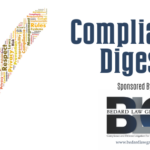Too little, too late, a District Court judge in New York has ruled, granting a defendant’s motion to dismiss a Fair Debt Collection Practices Act case, determining that claims raised by the plaintiff in opposing the motion to dismiss to prove she had standing do not reach the threshold necessary to allow the case to proceed.
A copy of the ruling in the case of Biener v. Credit Control Services can be accessed by clicking here.
The plaintiff — a Medicaid recipient — had an in-office procedure done that required some lab tests to be conducted. The plaintiff disputes ever receiving a bill from the lab company, and the account was subsequently placed with the defendant, which sent the plaintiff a letter. The defendant called the plaintiff, who indicated she was a Medicaid beneficiary — and the defendant noted that on the account. The defendant sent four more letters to the plaintiff seeking to collect on the debt, and reported the balance to all three major credit reporting agencies.
The plaintiff filed suit, accusing the defendant of violating the FDCPA. In her complaint, the plaintiff claims she was misled by the defendant, that she and her husband were afraid of the negative credit reporting, and were forced to retain an attorney and expend time and money to investigate if the debt was collectible.
The defendant filed a motion to dismiss, or, alternatively, a motion for summary judgment, arguing the plaintiff lacked standing to sue because she did not suffer a concrete injury. In responding to the motion, the plaintiff noted that hard inquiries were placed on her credit report and that she had to engage the services of a credit repair company to rehabilitate her credit report, but the plaintiff did not provide enough evidence to convince Judge Kenneth M. Karas of the District Court for the Southern District of New York. “… the Court is skeptical that a statement in Plaintiff’s declaration stating that there indeed were hard inquiries — absent additional evidence such as a credit report actually showing those hard inquiries — would be sufficient to confer standing,” he wrote. Regarding the credit repair claim, the plaintiff never said she actually paid any funds to the agency — only that her husband contacted the agency on the plaintiff’s behalf.









